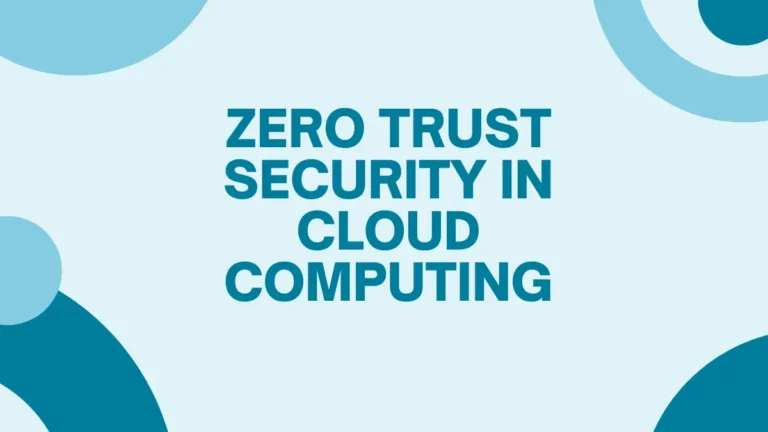As a software developer, I am always on the lookout for ways to optimize and streamline my workflow. One of the most important tools in my arsenal is the DevOps tool chain. The DevOps tool chain is a set of tools and processes that enable developers to create, test, and deploy software quickly and efficiently. In this blog post, I will discuss the importance of the DevOps tool chain, the benefits of using cloud platforms like AWS, Azure, and GCP, and how to maximize your DevOps tool chain with cloud platforms. If you’re just starting with cloud migration, check out our detailed guide on Cloud Migration Challenges to get a comprehensive overview of the process and its potential challenges.
Importance of DevOps Tool Chain
The DevOps tool chain is critical for software development teams as it allows them to automate the entire software development lifecycle. This automation helps to reduce errors, improve software quality, and accelerate the development process. The tool chain includes everything from version control systems, continuous integration and delivery tools, testing frameworks, and deployment automation tools. By using the DevOps tool chain, developers can focus on writing high-quality code, while the tools take care of the rest.
Maximizing DevOps Tool Chain with Cloud Platforms
Cloud platforms like AWS, Azure, and GCP provide developers with a powerful set of tools to optimize their DevOps tool chain. These platforms offer a wide range of services, including virtual machines, containers, databases, and storage, that can be used to build and deploy applications. By leveraging these services, developers can reduce the time and effort required to set up and manage their infrastructure, allowing them to focus on building and testing their applications.
Benefits of Using Cloud Platforms for DevOps
There are several benefits to using cloud platforms for DevOps. First and foremost, cloud platforms provide developers with a highly scalable and flexible infrastructure. This means that developers can quickly and easily scale their applications up or down based on demand. Additionally, cloud platforms offer a high level of availability, reliability, and security, which is critical for mission-critical applications.
Cloud platforms also provide developers with a wide range of services and tools that can be used to optimize their DevOps tool chain. For example, many cloud platforms offer container orchestration tools, such as Kubernetes, that make it easy to manage and deploy containers. Additionally, cloud platforms provide developers with powerful analytics and monitoring tools that can be used to gain insights into their applications’ performance and behavior.
Understanding AWS, Azure, and GCP
AWS, Azure, and GCP are three of the most popular cloud platforms available today. Each platform offers a unique set of services and tools that can be used to optimize your DevOps tool chain. AWS, for example, offers a wide range of services, including EC2, S3, and RDS, that can be used to build and deploy applications. Azure, on the other hand, offers services such as App Service, Functions, and Cosmos DB, while GCP offers services like Compute Engine, Cloud Storage, and Cloud SQL.
Choosing the Right Cloud Platform for Your DevOps Tool Chain
Choosing the right cloud platform for your DevOps tool chain can be a daunting task. It is important to consider factors such as the services and tools offered by each platform, the pricing model, and the level of support provided. Additionally, it is important to consider the specific needs of your application and the requirements of your development team.
One way to choose the right cloud platform for your DevOps tool chain is to conduct a thorough evaluation of each platform. This evaluation should include a review of the platform’s services and tools, as well as a review of the platform’s documentation and support resources.
Integrating DevOps Tool Chain with Cloud Platforms
Integrating your DevOps tool chain with cloud platforms requires careful planning and execution. One of the first steps in the integration process is to identify the specific services and tools that will be used. Once these services and tools have been identified, the next step is to configure the tool chain to work with the cloud platform.
Many cloud platforms offer plugins and integrations that can be used to streamline the integration process. For example, AWS offers plugins for Jenkins and other popular DevOps tools that make it easy to integrate these tools with AWS services. Similarly, Azure offers plugins for Visual Studio and other popular development tools.
Best Practices for Using DevOps Tool Chain on Cloud Platforms
To maximize the benefits of using a DevOps tool chain on a cloud platform, it is important to follow best practices. Some of the best practices include:
- Use version control systems to manage code changes
- Use continuous integration and delivery tools to automate the build and deployment process
- Use testing frameworks to ensure software quality
- Use monitoring and analytics tools to gain insights into application performance and behavior
- Use automation tools to reduce manual effort and improve efficiency
Monitoring and Managing DevOps Tool Chain on Cloud Platforms
Monitoring and managing a DevOps tool chain on a cloud platform can be challenging, especially as applications become more complex. To effectively monitor and manage your DevOps tool chain, it is important to use analytics and monitoring tools that provide real-time insights into application performance and behavior.
Many cloud platforms offer powerful analytics and monitoring tools that can be used to gain insights into application performance. For example, AWS offers CloudWatch, which provides real-time monitoring and alerts for AWS resources. Similarly, Azure offers Application Insights, which provides real-time monitoring and analytics for Azure applications.
Future of DevOps Tool Chain on Cloud Platforms
The future of the DevOps tool chain on cloud platforms looks bright. As cloud platforms continue to evolve, developers can expect to see even more powerful tools and services that can be used to optimize their tool chain. Additionally, as more organizations move to the cloud, it is likely that DevOps tool chains will become even more critical for software development.
Conclusion
In conclusion, maximizing your DevOps tool chain with cloud platforms like AWS, Azure, and GCP can help you to build and deploy applications quickly and efficiently. By leveraging the powerful services and tools offered by these platforms, developers can reduce the time and effort required to manage their infrastructure, allowing them to focus on building and testing their applications. To get started with your DevOps tool chain on a cloud platform, consider evaluating the services and tools offered by each platform and following best practices for integration and management.
Read more: How to Plan an Effective Cloud Disaster Recovery Strategy?




